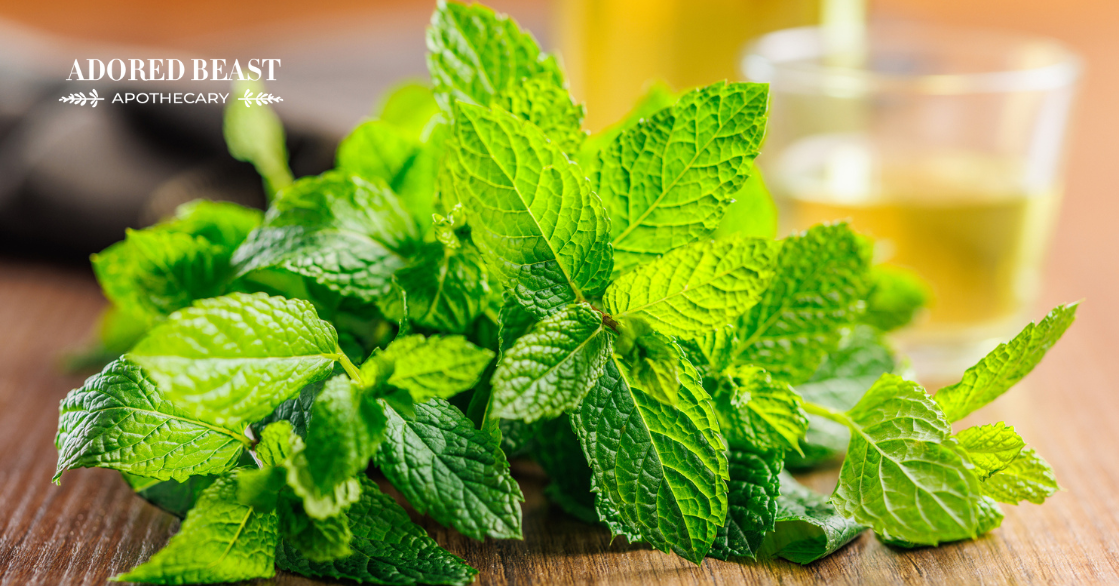Kidney disease in dogs and cats is, unfortunately, a very common condition. Estimates suggest 1 in 10 dogs suffer from kidney disease – that’s 10% of the canine population, and the number grows with age. And, an estimated 30-40% of cats over 10 years and 81% of cats over 15 years get kidney disease.
Those are high numbers.
The kidneys play a vital role in your pet’s health, including removing waste from the blood, regulating electrolytes and blood pressure, and creating hormones that support calcium metabolism and red blood cells. When they’re not functioning as they should, it can impact the whole body.
Whether your animal currently has kidney disease, or you’re just looking for ways to protect them moving forward, this blog is an important one to read!
The Different Types of Kidney Disease
There are a few different ways to describe kidney issues and the extent of the “disease” in the body. I always looked at it as:
1. Acute Kidney Insult
This is when the kidneys become damaged, whether through an infection, poisoning, or some other event.
Symptoms of acute kidney insult can include:
- Drooling
- Vomiting
- Loss of appetite
- Frequent urination
- back or abdominal pain
- Bloody diarrhea
- Black, tarry stools
- Lethargy
- Seizures
This is a life-threatening situation that can be seen within a few hours or a few days. Without treatment, acute kidney insult leads to kidney failure and death.
This is where emergency integrative therapy can work its magic.
Conventional diagnostics, IV fluids, sometimes antibiotics, even surgery can all be vital, but adding acute homeopathy can also be lifesaving and help to decrease lifelong scarring that can lead to chronic damage and early renal disease and kidney failure. We’ll cover these remedies in a little bit.
2. Chronic Kidney Disease
This is the common degenerative process in geriatric animals when the kidneys lose function over time. This is more common in cats than dogs, but I have seen it increase in dogs over the last 10 years. We can also see this when an extremely mild case of acute kidney insult is left untreated – the kidneys can start to degenerate more quickly over time, for years, eventually expediting the failure.
Symptoms of chronic kidney issues include:
- Drinking more or less water
- Change in volume and frequency of urination
- Loss of interest in playing or interacting
- Decreased appetite
- Vomiting or diarrhea
- Unexplained weight loss
- Blood in urine
- Signs of dental disease like pale gums, smelly breath, mouth ulcers
3. Associated Kidney Disease
This is when kidney health is affected by another medical condition. Sometimes this happens following an acute insult, leading to chronic kidney disease.
The most common associated medical conditions include:
- Nephrotoxicosis (kidney toxicosis): damage to kidney cells associated with drugs, too much or overdoses of NSAIDs, heart medication (beta blockers and calcium blockers), the overuse of vaccines with thimerosal or gentamicin, or poison (ex. antifreeze, paints, solvents, windshield washer fluid, agrochemicals, molds, heavy metals), chemotherapy, even certain foods like grapes, raisins, and currents can be toxic to the kidneys with certain dogs. In the cases of chemotherapy or drugs, things you know are going to be really hard on the kidneys, it’s a good idea to be proactive with things you know will offer support, such as nux vomica, phosphorus, and organ-supporting herbs such as those found in our Liver Tonic.
- Polycystic kidney disease: a genetic degenerative syndrome where the kidney cells become cysts and therefore are unable to function.
- Nephritis: this is an infection of the kidneys.
- Heart failure: because the kidneys do not receive adequate blood supply, the cells become damaged, leading to secondary kidney disease.
- Kidney stones or renal calculi – these deposits are composed of mineral and acid salts and form inside the kidney. They can be caused by genetics, UTIs, dehydration, any metabolic disorder (ex. Cushing’s, hyperparathyroidism, cancer) that lead to high calcium levels in the blood.
Symptoms of associated kidney disease include:
- Frequent urination, often with straining
- Pain in lower back and/or abdomen
- Blood in urine or dripping from penis or vulva
Some dogs will show no signs at all, but if, all of a sudden, your dog starts to vomit, becomes lethargic, does not want to eat, or has painful urination, a vet visit is required immediately and kidney stones should be ruled out.
Diagnostics for Kidney Disease and the Four Stages
Always try and get ahead of any illness by doing a healthy routine blood panel.
In the case of acute kidney disease in dogs and cats, immediate emergency veterinary care is needed. Your vet will run blood and urine tests. Ultrasounds are really helpful and your pet will be given IV and appropriate medication. You don’t want to leave this to progress.
Stage 1
Bloodwork must be done regularly:
- BUN
- Creatinine
- SDMA
- Electrolytes
You should have a morning urine test done to check the specific gravity (ratio of urine density to water) to make sure the kidneys are still able to concentrate the urine.
- For cats purchase Nosorb to collect urine at home
- For dogs use a stainless steel soup ladle to collect urine
Monitoring clinical signs of kidney disease is SO important! For example, watch for:
- Increased thirst and urination (PU/PD)
- Weight loss
- Constipation
- Lethargy
- Nausea
Most animals in stage 1 will have increased kidney values on blood tests, lower than ideal specific gravity and urine, and physically show the beginning stages of increased thirst and urination.
Stage 2
To diagnose stage 2 kidney disease, bloodwork is essential yet again. This will show what your pet’s kidney values are doing.
Make sure you get a geriatric panel with an SDMA. Many vets will reserve this only for older animals, but if the kidneys are on the radar it can be useful with younger ones as well. The kidneys excrete SDMA and will show kidney dysfunction earlier than the typical creatinine and BUN results. SDMA tests are more reliable because they can identify if the kidney has had an acute injury or is in chronic kidney failure.
Stage 2 can occur in chronic kidney disease, but it can also occur in times of high stress or if there are other illness complications, so it’s still important to do regular blood testing to see if it trends down or up as you adjust the diet. Sometimes it will trend down once you holistically assess the case and make changes to your animal’s health care plan.
Symptoms include stage one symptoms, plus:
- Loss of appetite
- Vomiting
Stage 3 and 4
We will still be doing the same tests, but clinical appearance and symptoms are even more important.
Observe, and ask yourself: how is my pet doing?
At these stages, true degenerative kidney disease is likely and the diet may need adjusting to compensate for this. At these stages, phosphorus may be high and potassium and sodium may also not be in normal range. BUN/Creatinine and SDMA are often significantly elevated.
Symptoms include stage one and two symptoms (often more intense), plus:
- Chronic bladder infections
- Cloudy urine
- Bad breath
- Mouth ulcers
- Increased vomiting
- Constipation
- Disorientation
- Disinterest in normal daily activities or things that your animal would usually be interested in
Holistic Management of Kidney Disease in Dogs and Cats
Once a diagnosis of kidney disease was confirmed, our clinic protocol was to implementing variety of steps including homeopathy, diet, pre and probiotics, digestive enzymes, organ support, plus:
For stage 3 and 4, that meant reducing phosphorus and adding omega 3s, vitamin B, vitamin C, and, vitamin E. *Based on bloodwork, sodium and potassium were sometimes added for electrolyte balance.
Intravenous fluids were also given to help with dehydration and any possible electrolyte imbalances. Ask your vet to show you how to do subcutaneous fluids at home, as that can make things a lot easy on both you and your animal.
Homeopathy
Acute: along with your veterinary emergency care, our clinic protocol included these remedies:
- Aconite 200C
- Arnica 200C
- Berberis 12C, 30C, 200C
- Nux Vomica 30C and 200C
- Phosphorus 30C and 200C
Stage One:
- Berberis 12C
- Phosphorus 30C
- Thiosinaminum 12C
Stage Two:
- Arnica 200C
- Berberis 12C or 30C (whichever you can find)
- Phosphorus 30c or 200C (whichever you can find)
- Thiosinaminum 12C
Stage Three & Four:
- Arnica 200C
- Berberis 30C
- Phosphorus 200C
- Thiosinaminum 12C
Give every hour, 3 times, then every 4 hrs, over a 12 hour period, then 3 times a day for one week, then once a day for one week, then once a week ongoing or until symptoms resolve.
Diet
Diet plays a significant role in management. It’s imperative that your animal eats. You may need to try different approaches to find the perfect one for your pet. Be patient, in my experience, an “all-at-once” approach doesn’t typically work.
Stage 1
A balanced home-made or commercial raw diet is ideal, especially if they are currently eating dry food. Bloodwork should be regularly assessed (every 6 weeks) to see trends in the kidney values. Clinical symptoms are really important too, especially excessive drinking and urination (PU/PD). If there is no PU/PD, a good quality regular raw diet is the best option.
Stage 2
If phosphorus is still in the normal range and your animal is not PU/PD, a high quality balanced raw diet is still the best option to avoid muscle wasting (which low protein diets can cause).
A Kidney Supportive Recipe – Ideal for Stage 3 and 4
You most likely will see clinical symptoms at this stage – eg. PU/PD, bad breath, lethargy, anorexia.
Decrease phosphorus in the diet and add omega 3s, vitamin Bs, vitamin E, and vitamin C. Sodium/potassium needs to be added in relativity to bloodwork for electrolyte balance but start with the recipe below from Animal Nutritionist Sarah Griffiths for a well-balanced diet that is low in phosphorus and iodine:
- 227 grams ground chicken or turkey breast (raw or cooked)
- 227 grams chicken/turkey thigh meat (raw or cooked)
- 227 grams chicken/turkey heart (raw or cooked)
- 227 grams chicken/turkey liver (raw or cooked)
- 50 grams baked (well-cooked) winter squash (no skin)
- 40 grams psyllium fibre
- 40 grams of herring or mackerel oil
- 20 grams eggshell powder (do not substitute bone meal)
- 3.5 grams potassium salt (low sodium)
- 3 drops (33 IU) Trophic liquid vitamin E
- 1 gram Ascorbic Acid Powder from Now Brand
*Makes roughly 2.5 lbs of food. Good for dogs and cats
Supplements
There are several supplements that you can add to your animal’s routine to support the kidneys (and the entire body), no matter which stage they’re in:
- Supporting the gut with pre and probiotics. Not only is beneficial bacteria paramount for kidney function, reducing bacterial load, and metabolizing hormones and enzymes for nutrition, science is showing it also directly relates to kidney health. Species-specific probiotics are a really good choice. (Fido’s Flora & Felix’s Flora, The Wolf, Soil & Sea).
- Digestive enzymes can also be helpful to assist the digestive process and help the body absorb more nutrients.
- Support the other organs. Our Liver Tonic is really good for this, and it’s very gentle.
- Inflammation soothing herbs like those in our Gut Soothe and Feline Gut Soothe can help soothe the mucous membranes.
- Antioxidants can help support kidney function, and neutralize harmful molecules in the body.
Supportive Herbs
These supportive herbs are recommended by our friend Rita Hogan, Canine Herbalist:
- Astragalus
- Burdock Root
- Couch Grass
- Goldenrod
- Marshmallow Root
- Nettle & Nettle Seed
- Parsley
Healthy Lifestyle
There are also several lifestyle changes you can make to support your animal.
- Dehydration – Rehydration. Dogs and cats on kibble have depleted kidney energy due to the dryness of their food. Water is life and it is also the key to healthy kidneys.
- In human kidney research, stress is now being looked at as a major contributor to kidney disease! Stress and uncontrolled reactions to stress can also lead to kidney damage. As the blood filtering units of the body, the kidneys are prone to problems with blood circulation and blood vessels. High blood pressure and high blood sugar can place an additional strain or burden on the kidneys.
How Can I Prevent Kidney Disease?
There are many ways to proactively support the kidneys to help avoid the risk of kidney disease in dogs and cats:
1. Diet
As we know, chronic dehydration is a major factor of chronic degeneration of the kidneys. Dogs and cats rely on the moisture in their food for a huge percentage of their hydration. Feeding dry food contributes greatly to the chronic effects of dehydration. Feeding a raw food diet or a cooked food diet supports kidney health and overall longevity. Look for organic or grass-fed local meat and veggies, non-sprayed, as clean as possible (this includes their supplements and water, too).
2. Supportive Supplements
Those supportive supplements we mentioned above for animals with kidney disease are actually ALL helpful for supporting healthy kidneys to keep kidney disease at bay.
- Support the gut – The gut is the conductor of the body’s proper functioning, keeping it healthy supports the homeostasis of all organs. Pre and probiotics are vital here!
- Digestive enzymes can also be helpful to assist the digestive process and help the body absorb more nutrients.
- Support the other organs.
- Antioxidants like Phyto Synergy and medical mushrooms help with oxidative stress.
3. LOVE and a species-oriented lifestyle
Get cuddling, reduce boredom, interact, reduce your stress, get outside into nature, breathe and have fun.
Kidney disease in dogs and cats can be a distressing diagnosis to receive, but with attentive care and gentle management, you can support your animal. Sending you love and support!












